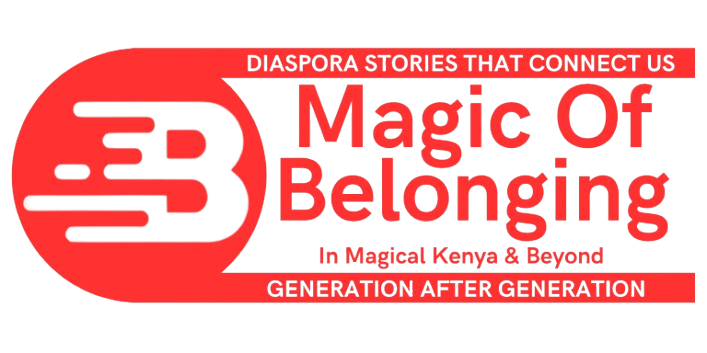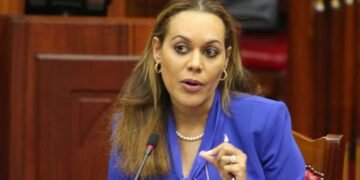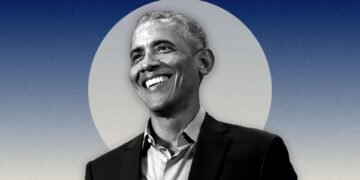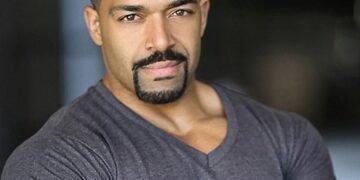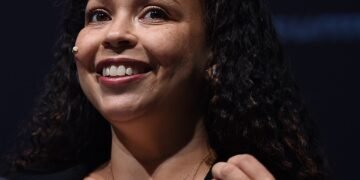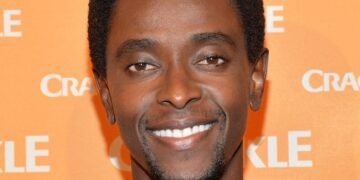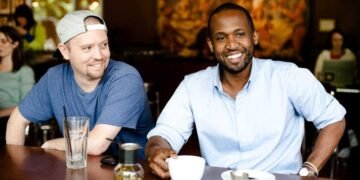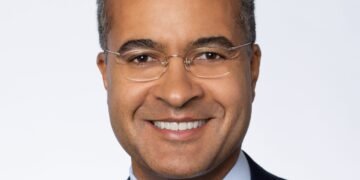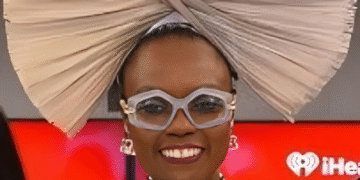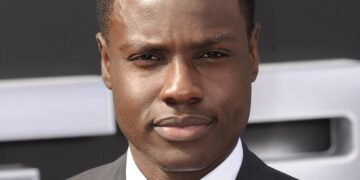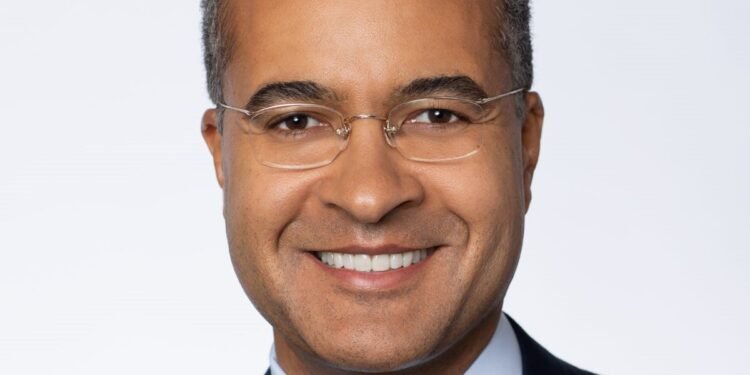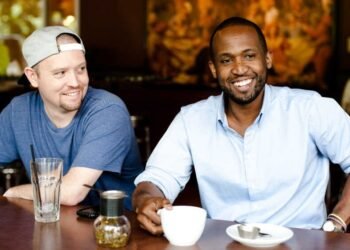In a quiet surgical theater somewhere in Silicon Valley, a child opens their eyes after a delicate procedure—and sees their mother’s face clearly for the first time. Behind that transformation is Dr. Omondi Nyong’o, a renowned pediatric ophthalmologist whose medical touch spans far beyond the borders of California.
To most, he is a leading expert in children’s eye care. But to those who understand the full story, he is something more: a bridge between continents, a fighter for racial justice in medicine, and a living embodiment of how Kenyan heritage can shape not only who you are—but how you serve the world.
A Childhood Woven Between Continents
Born into a family that spans academia, the arts, and global leadership, Omondi’s roots trace back to Nairobi, where he spent part of his childhood immersed in Kenyan life. The other part unfolded in Ann Arbor, Michigan, where his family also lived. His upbringing was not a story of migration from one place to another—it was a life lived in parallel worlds.
His relatives are names many know: Lupita Nyong’o, his cousin and Academy Award-winning actress; Isis Nyong’o Madison, a tech executive and Forbes-listed powerhouse; and Tavia Nyong’o, an NYU scholar redefining cultural studies. Excellence was never a distant aspiration—it was family tradition.

But for Omondi, it was in Nairobi—watching families navigate a healthcare system with too few resources—that the seed was planted. It wasn’t just the medical need that moved him, it was the quiet dignity and resilience of communities that, despite obstacles, showed up for each other. The Kenyan value of Harambee—the collective pulling together—stayed with him.
Surgical Precision, Communal Heart
Omondi Nyong’o’s academic path reads like an American dream: a Neuroscience degree from Brown University (cum laude), a Medical Degree from UC San Francisco, and a residency and fellowship at elite institutions. By 2008, he was board-certified and already standing out in the field of pediatric ophthalmology.
But his practice was never just about technical skill. At Crescendo MD, the Bay Area clinic he co-founded, Dr. Nyong’o reimagined eye care as a collaborative effort. Drawing from his Kenyan roots, he built a system where doctors, orthoptists, and technicians worked in sync—not in hierarchy. Patients weren’t numbers on a chart—they were part of a shared journey.
For him, vision was never just physical. It was relational. Healing a child’s eyes meant healing family bonds.
He once described the moment his baby daughter smiled at him as life-changing. That flash of recognition—a connection made through sight—redefined his mission. For him, vision was never just physical. It was relational. Healing a child’s eyes meant healing family bonds.
His achievements are impactful:
- He helped create preschool screening systems to detect eye problems early, especially in underserved communities.
- He tailored surgical approaches to accommodate anatomical diversity among ethnic groups.
- He actively shared knowledge across borders, including with ophthalmologists in East Africa.
While he may not practice regularly in Kenya, the philosophy of his Kenyan upbringing—care rooted in community, resilience, and dignity—shapes everything he does.
Breaking Barriers, Then Facing Them
In 2006, Dr. Nyong’o became the inaugural Chair of Ophthalmology at the Palo Alto Medical Foundation (PAMF)—a historic appointment. For 15 years, he led with distinction, overseeing research and helping thousands of families. But the same excellence that elevated him would soon be met with resistance.
In 2021, Nyong’o filed a landmark lawsuit against PAMF, revealing racial bias that had simmered beneath the surface. He alleged pay disparities, discriminatory evaluations, and being labeled the “angry Black man”—a stereotype weaponized to punish Black professionals who speak up.
Despite being the only Black department chair in the foundation’s history, he was demoted. The lawsuit sent shockwaves through the medical community, especially amid the racial reckoning following George Floyd’s death.
But Omondi Nyong’o didn’t flinch. Armed with his Kenyan-honed sense of justice, he saw the problem not as personal, but systemic—and challenged it. He invoked California’s civil rights protections and stood firm, not just for himself, but for all doctors of color who feared similar treatment.
Kenya in Practice, Even from Afar
Nyong’o’s advocacy isn’t limited to operating rooms. Whether he’s speaking out about the corporatization of healthcare, fighting for fair pay, or championing early intervention in children’s vision, you can see the fingerprints of Kenya in his worldview.
He may not live in Kenya, but Kenya lives in him:
- His teamwork-based clinical model echoes Harambee.
- His emphasis on access over profit challenges U.S. norms, aligning more with Kenyan community healthcare goals.
- His legal resistance reflects the courage of Kenyan reformers—those who fight back not just for themselves, but for the good of many.
A Global Legacy in Sight
Today, Dr. Nyong’o practices at Stanford Medicine Children’s Health while continuing his work at Crescendo MD. But the impact of his journey travels further than state lines.
- A child in Nairobi may benefit from vision screening protocols inspired by his work.
- A Black medical resident in the U.S. may find strength in his lawsuit.
- A parent in California, watching their child’s eyes light up with clarity, may never know that their healing came from the hands of a man carrying generations of Kenyan wisdom.
Dr. Omondi Nyong’o shows us that belonging is not only about proximity—it’s about perspective. His Kenyan-American identity isn’t something he had to choose between. It’s the dual lens through which he sees clearly, heals deeply, and leads boldly.
In a world too often divided by borders, race, and systems, Dr. Nyong’o’s story reminds us of a powerful truth: You can stand on more than one shore. And in doing so, you can light a path for others to follow.
